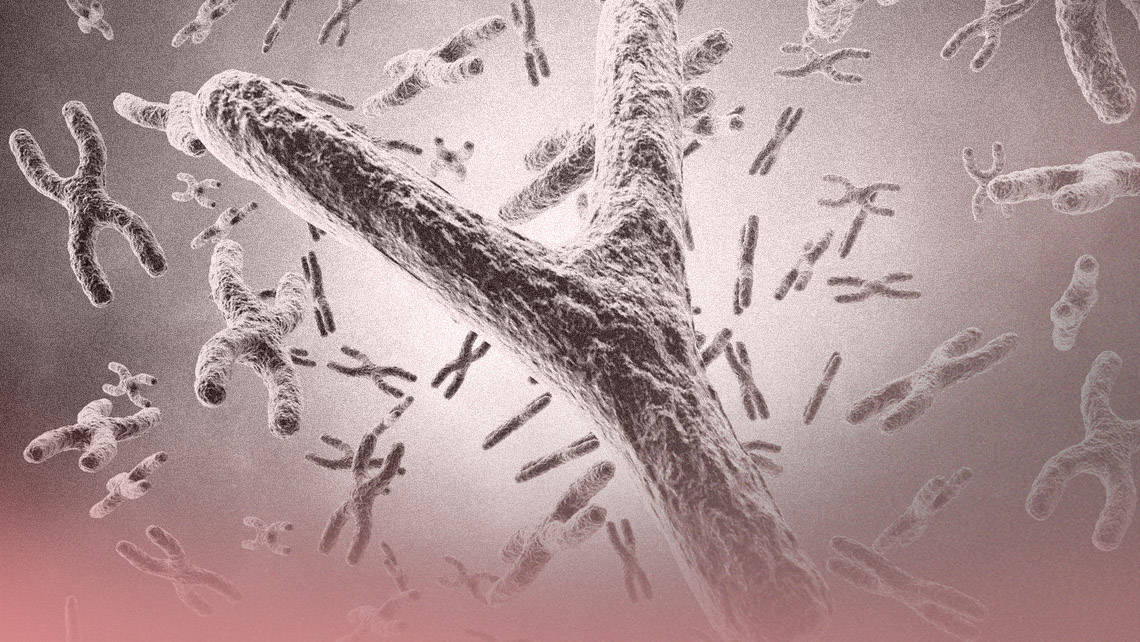
Usefulness of the Karyotype
The karyotype is the number of chromosomes in metaphase that we have. Chromosome count and therefore karyotype are characteristic to each species. Human beings have 46 chromosomes (23 pairs) in the nucleus of each cell in their body. These 23 pairs are organised into 22 pairs termed autosomes and one pair of sex chromosomes (X and Y) that differentiates both sexes (men XY and women XX).
Chromosomes in each species have a set of characteristics, such as form, size, position of the centromere and the banding patterns they generate when dyed, thanks to which we can differentiate them.
Examination of the karyotype allows us to detect abnormalities in number and structure in a person’s chromosome complement. To this end, an analysis of metaphase chromosomes is performed from a culture of peripheral blood lymphocytes. This test is extremely important in those patients who need an assisted reproduction technique, as chromosomal abnormalities are more prevalent in couples with reproductive disorders than in the general population. It is indicated mainly in cases of severe sperm abnormalities, ovarian failure or couples who have suffered recurrent miscarriages or implantation failures after an IVF treatment.
The most common chromosomal alterations in these patients are numerical abnormalities, such as Klinefelter’s syndrome (karyotype 47,XXY) and Turner’s syndrome (karyotype 45,X0). Males with Klinefelter’s syndrome suffer from testicular failure resulting in infertility, and in Turner’s syndrome patients are female, and the lack of one X chromosome makes their primary and secondary sexual characters fail to develop, thus leading to infertility. Some other chromosomal alterations that are also common are structural (Robertsonian translocations, inversions, duplications, and so on). Structural alterations may make it difficult to achieve pregnancy, as they cause abnormalities in the spermiogram in males and ovarian failure in females. They can also cause recurrent miscarriage and implantation failure, either spontaneously or after an In Vitro Fertilisation treatment.
If a chromosomal abnormality is found in one of the partners, provided that there is not a total lack of sperm or oocytes, the solution to ensure healthy biological offspring is found in Preimplantation Genetic Diagnosis (PGD). PGD is a technique to detect genetic or chromosomal abnormalities that is performed on embryos before they are transferred into a woman’s uterus.
In addition to the abnormalities mentioned above, there are chromosomal variants termed polymorphisms. Such polymorphisms are relatively common in the general population and no phenotypic consequences have been found, but lately they have been related to infertility, recurrent miscarriage and chromosomal abnormalities in offspring in the scientific literature. When a case of chromosomal polymorphism is found, the therapeutic decision is made in accordance with the patient’s medical history.
We have recently purchased and implemented a new state-of-the-art technique named Array-CGH, much more sensitive and efficient than conventional karyotype (it enables us to identify duplications or deficiencies in small chromosomal regions that karyotype cannot detect), resulting in diagnosis levels that are 10 times more powerful. This technique is a great advance for cases of unknown cause infertility and recurrent implantation failure (find out more about Array-CGH).
Dr. Ruth Morales, molecular biologist at Instituto Bernabéu.
To found out the next topics for our forum: follow us on facebook.
You can arrange an online consultation or book an appointment at Instituto Bernabeu.
More information on our website: www.institutobernabeu.com or www.ibbiotech.com
